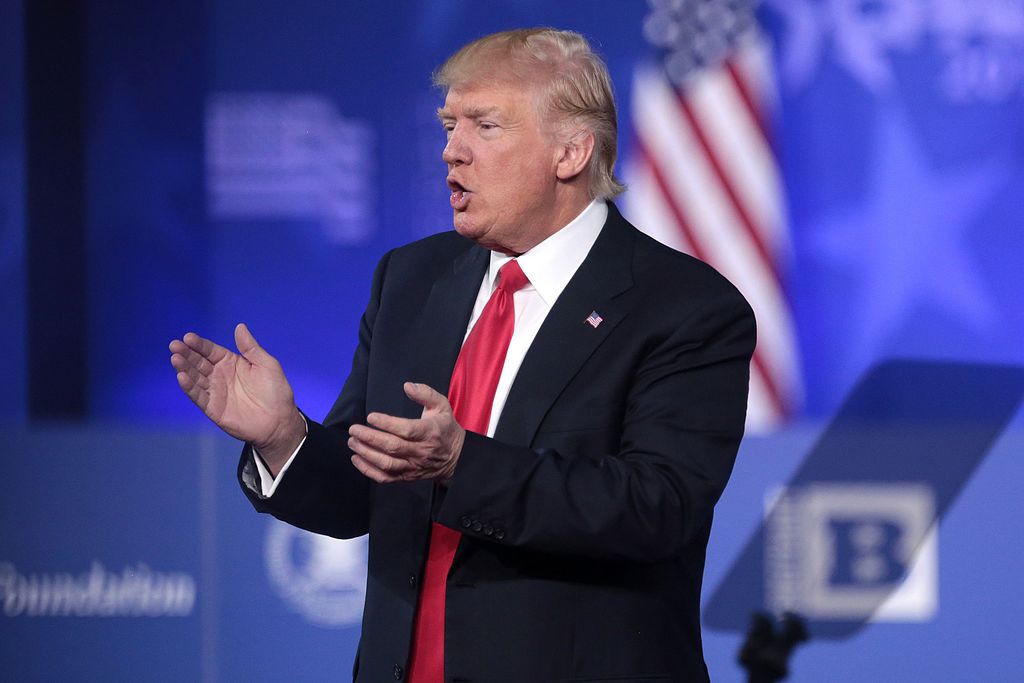Donald Trump, now in his second term as president, is implementing an aggressive plan to combat international money laundering, an issue that has plagued financial systems globally. With bold policies and a hardline approach, his administration is seeking to tighten controls, disrupt illicit networks, and enhance global cooperation to prevent dirty money from undermining the U.S. economy.
Tougher Financial Regulations at Home
At the core of Trump's strategy is a significant overhaul of financial regulations. The administration is pushing for stricter reporting requirements for banks and non-bank financial institutions. Under these new measures, entities must report transactions exceeding $5,000, reducing the threshold from the previous $10,000. According to Treasury Secretary Steven Mnuchin, the lower reporting limit will create a stronger paper trail, helping authorities identify suspicious activities more effectively.
Additionally, the Department of Justice has been granted expanded authority to prosecute financial institutions that fail to comply with anti-money laundering (AML) protocols. To ensure compliance, hefty fines and criminal penalties are being introduced, signaling that negligence will no longer be tolerated.
Enhancing Global Cooperation
Recognizing the transnational nature of money laundering, Trump’s administration is also focusing on enhancing international cooperation. By strengthening alliances with key partners, such as the European Union and the Financial Action Task Force (FATF), the U.S. is working to harmonize AML regulations across borders. This initiative aims to close loopholes that criminals exploit in jurisdictions with weaker financial oversight.
The administration has also expanded its use of targeted sanctions. In coordination with allies, it has blacklisted several offshore banks and shell companies linked to drug cartels, terrorist organizations, and tax evasion schemes. These actions have drawn mixed reactions globally, with some praising the bold moves while others criticize the collateral economic impacts on developing nations.
The Role of Technology in Tracking Dirty Money
Technology plays a critical role in Trump’s anti-money laundering agenda. The administration has directed resources toward artificial intelligence systems capable of analyzing complex financial networks. These systems can identify patterns indicative of money laundering, such as layering and smurfing, with greater speed and accuracy than traditional methods.
Trump has also authorized the development of blockchain-based tools for monitoring cryptocurrency transactions. While some critics argue that such measures infringe on privacy, the White House maintains that these tools are essential in addressing the rise of crypto-based money laundering schemes.
Public Reaction Divided Over Trump’s Approach
Trump’s bold measures have ignited fierce debate online. While some netizens applaud his aggressive stance, others question the potential overreach of government powers.
@CryptoConscious tweeted: “Trump cracking down on money laundering? Great. But what about our financial privacy? #CivilLibertiesMatter.”
@FinanceGuru2025 said: “Finally, a president tackling the real issues! Money laundering is a global menace. Well done, Trump.”
@AntiCorruptionWatch wrote: “Sanctioning offshore banks sounds good, but small economies could suffer. Collateral damage is real. #GlobalImpact.”
@LibertyFirst exclaimed: “Is this about justice or control? Tracking every $5,000 transaction feels like Big Brother to me.”
@AMLexpert2025 noted: “The U.S. leads the fight against dirty money. Coordinated action with FATF is critical for global success.”
@JohnDoeCrypto added: “Blockchain oversight is essential, but government control over crypto could stifle innovation. Balance is key!”



 Australia Rules Out Military Involvement in Iran Conflict as Middle East Tensions Escalate
Australia Rules Out Military Involvement in Iran Conflict as Middle East Tensions Escalate  AI is already creeping into election campaigns. NZ’s rules aren’t ready
AI is already creeping into election campaigns. NZ’s rules aren’t ready  Trump to Address Nation as U.S. Launches Strikes in Iran, Axios Reports
Trump to Address Nation as U.S. Launches Strikes in Iran, Axios Reports  Marco Rubio to Brief Congress After U.S.-Israeli Strikes on Iran
Marco Rubio to Brief Congress After U.S.-Israeli Strikes on Iran  Trump Says U.S. Combat Operations in Iran Will Continue Until Objectives Are Met
Trump Says U.S. Combat Operations in Iran Will Continue Until Objectives Are Met  EU Urges Maximum Restraint in Iran Conflict Amid Fears of Regional Escalation and Oil Supply Disruption
EU Urges Maximum Restraint in Iran Conflict Amid Fears of Regional Escalation and Oil Supply Disruption  Israel Strikes Hezbollah Targets in Lebanon After Missile and Drone Attacks
Israel Strikes Hezbollah Targets in Lebanon After Missile and Drone Attacks  Trump Launches Operation Epic Fury: U.S. Strikes on Iran Mark High-Risk Shift in Middle East
Trump Launches Operation Epic Fury: U.S. Strikes on Iran Mark High-Risk Shift in Middle East  Suspected Drone Strike Hits RAF Akrotiri Base in Cyprus, Causing Limited Damage
Suspected Drone Strike Hits RAF Akrotiri Base in Cyprus, Causing Limited Damage  Trump Warns Iran as Gulf Conflict Disrupts Oil Markets and Global Trade
Trump Warns Iran as Gulf Conflict Disrupts Oil Markets and Global Trade  Israel Declares State of Emergency as Iran Launches Missile Attacks
Israel Declares State of Emergency as Iran Launches Missile Attacks  Zelenskiy Urges Change in Iran After U.S. and Israeli Strikes, Cites Drone Support for Russia
Zelenskiy Urges Change in Iran After U.S. and Israeli Strikes, Cites Drone Support for Russia  Iran Supreme Leader Ayatollah Ali Khamenei Killed in Israeli, U.S. Strikes: Reuters
Iran Supreme Leader Ayatollah Ali Khamenei Killed in Israeli, U.S. Strikes: Reuters  Netanyahu Suggests Iran’s Supreme Leader Khamenei May Have Been Killed in Israeli-U.S. Strikes
Netanyahu Suggests Iran’s Supreme Leader Khamenei May Have Been Killed in Israeli-U.S. Strikes  U.S.-Israel Strike on Iran Escalates Middle East Conflict, Trump Claims Khamenei Killed
U.S.-Israel Strike on Iran Escalates Middle East Conflict, Trump Claims Khamenei Killed  HHS Adds New Members to Vaccine Advisory Panel Amid Legal and Market Uncertainty
HHS Adds New Members to Vaccine Advisory Panel Amid Legal and Market Uncertainty  Israel Launches Fresh Strikes on Iran After Death of Supreme Leader Ayatollah Khamenei
Israel Launches Fresh Strikes on Iran After Death of Supreme Leader Ayatollah Khamenei 
































